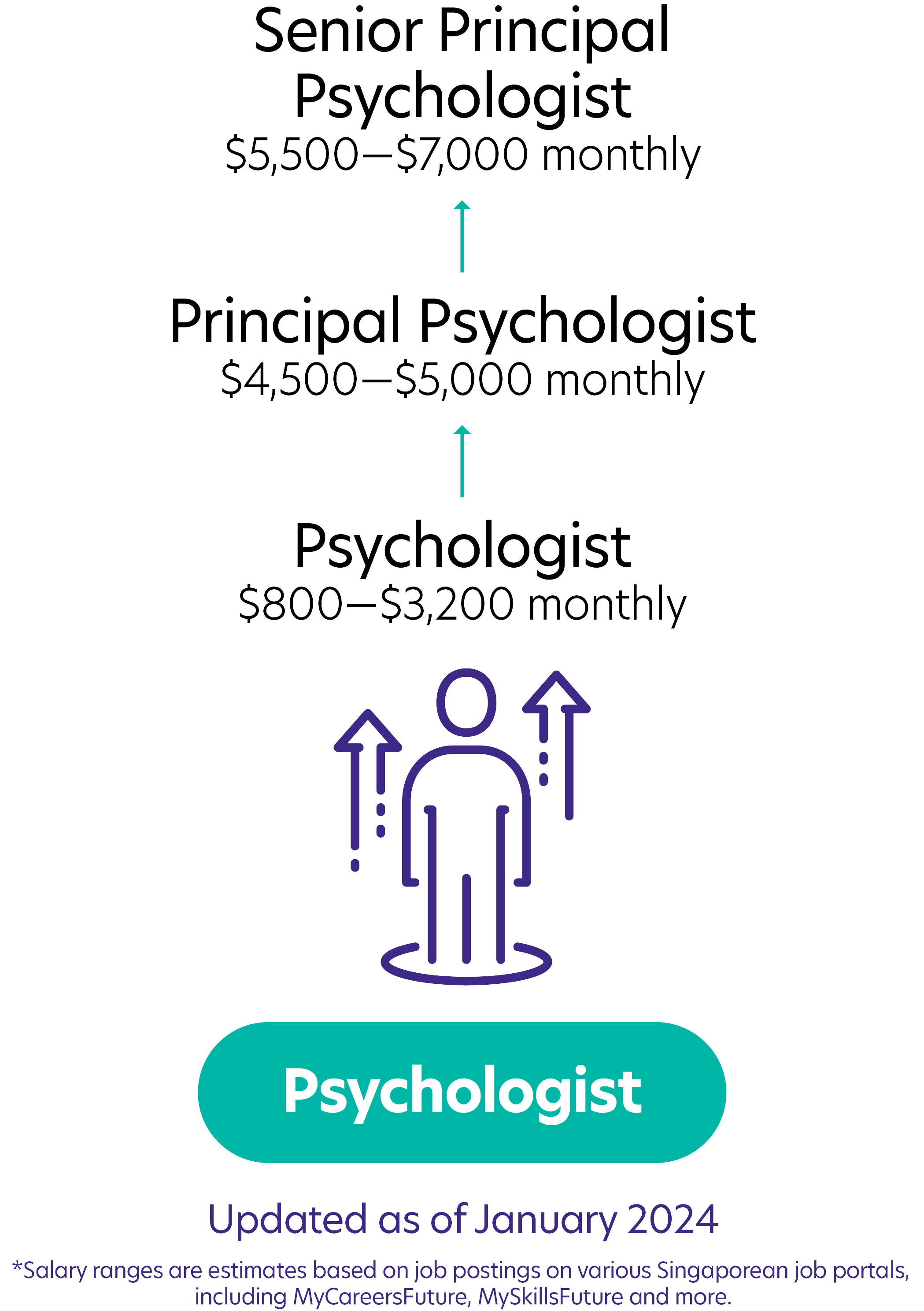
Psychologists provide scientific assessments, as well as prevention and intervention measures for clients with psychological conditions.
Psychology Job Description
- Conduct assessments to determine clients' clinical functioning needs, abilities and behaviour.
- Interpret results and make recommendations for intervention.
- Develop treatment and psychotherapy programmes for clients.
- Prepare assessment reports for routine cases.
- Research and keep updated on sector trends to improve existing interventions.
- Provide necessary referrals for clients’ additional care, evaluation, or treatment
Note
Although Psychologists are not officially licensed by Singapore, Psychologists can register with the Singapore Psychological Society or obtain overseas licences, after supervised practice.
What you should know about Psychology jobs in Singapore
Nature of Work
You can focus on Clinical, Counselling, and Educational Psychology tracks, or work in private clinics or the public sector, which have high demands.Key Advice
Contrary to popular belief, Mathematics and Statistics play a big part in Psychology. You will have to organise, describe and interpret data.-
Entry RequirementsEntry Requirements
- A bachelor's degree in Psychology will allow you to start off in this profession but you will need a master's degree to be a registered Psychologist.
- Apply for internships or join volunteer programmes to gain real-life exposure to social service, as it will help develop your skills in working with people who have different needs and abilities.
- Attend programmes or seminars which delve into the knowledge of diagnostic techniques.
-
Possible PathwayPossible Pathway

Skills you need to pursue Psychology career paths in Singapore
 Hard Skills
Hard Skills
Professional Consultation
Expertise in blending Science and experience to offer Psychological advice tailored to client needs.Psychological Assessment
Skilled in using psychological tests to evaluate mental health, cognition, and behaviour.Psychological Intervention
Skilled in developing treatment plans for mental health, behaviour issues, and emotional disorders.Communication Skills
Skilled in clear, empathetic communication and adapting to different audiences and contexts.Interpersonal Skills
Skilled in building rapport and relating effectively in diverse social and professional settings.Problem-Solving
Expert in problem-solving and decision-making in clinical and research environments.
“We guide them to understanding their condition and help them return back to their usual activities.”
Joanne Especkerman, Psychologist
Related Job Roles
Explore Other Programmes
Browse AllYou have bookmarked your first item!
Find it in My Discoveries with insights on your interests!





